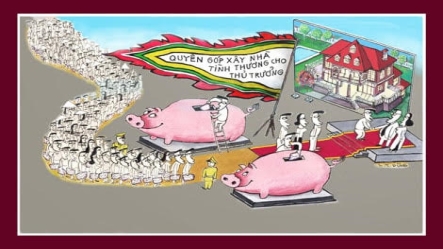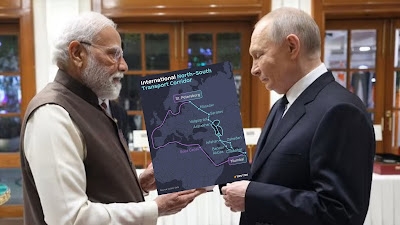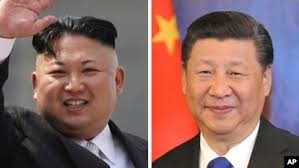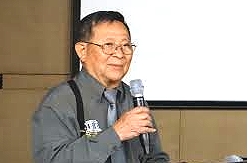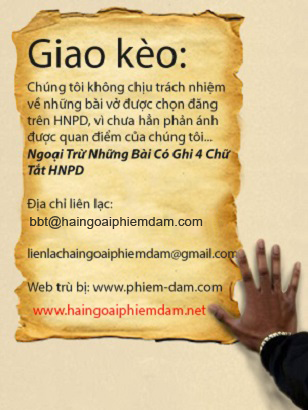For Immediate Release
EU: Press Vietnam on Human Rights Reforms
Upcoming Dialogue Should Focus on Commitments Made in Recent Trade Deals
(Bangkok, February 18, 2020) – The
European Union should press
Vietnam to end its systemic repression of human rights and release political prisoners and detainees, Human Rights Watch said today. A human rights dialogue between the EU and Vietnam is scheduled for February 19, 2020 in Hanoi.
The meeting will be held only a week after the European Parliament approved an EU-Vietnam Free Trade Agreement (FTA) and Investment Protection Agreement (IPA). With several other Vietnamese and international groups, Human Rights Watch had
urged the European Parliament to postpone ratification to put pressure on Vietnam to commit to human rights reforms and to agree to enforceable measures to improve labor rights.
“The European Union missed an important opportunity when it agreed to a trade deal with Vietnam without securing enforceable
commitments for human rights reforms,” said
John Sifton, Asia Advocacy director at Human Rights Watch. “EU officials should warn the Vietnam government during the human rights dialogue that failure to meet those commitments could result in suspension of the agreements’ benefits”.
Human rights should be an integral part of bilateral relations between the EU and Vietnam, Human Rights Watch said.
In January, Human Rights Watch sent the EU a
submission in preparation for the dialogue, urging the EU to focus on five priority areas regarding the dire human rights situation in Vietnam: 1) political prisoners and detainees; 2) repression of freedom of speech, association, assembly, and movement; 3) repression of freedom of information; 4) repression of the right to freely practice religion; and 5) police brutality.
The EU should urge Vietnam to release all political prisoners and detainees and amend articles in its penal code used to imprison people for peaceful protest, association, dissent, and religious activities, including articles 109, 116, 117, 118, and 331. The Vietnamese authorities frequently use these articles to punish anyone who expresses views or joins an independent group that Vietnam’s Communist Party sees as a threat to its monopoly on power.
In one notable incident in November 2019 linked to the EU-Vietnam agreements, the authorities detained a Vietnamese journalist,
Pham Chi Dung, and charged him with “making, storing, disseminating or propagandizing information, materials and products that aim to oppose the State of the Socialist Republic of Vietnam,” most likely in connection to
an overture he made to the European Parliament about Vietnam’s abysmal rights record. He remains in detention without access to a lawyer.
Pham Chi Dung is one among hundreds of activists who are
harassed, prosecuted, and convicted for peacefully exercising their right to freedom of expression, including
on social media. In late 2019, the European Parliament president, David Sassoli, sent a letter to Vietnamese authorities calling for his release ahead of the vote on the EU-Vietnam agreements.
The Vietnamese ambassador's reply, seen by Human Rights Watch, plainly defends the arrest and shamelessly compares Vietnam's limitations to freedom of expression to those in place in western countries.
Under Vietnam’s criminal procedure code, the authorities can detain people on national security charges for months, or sometimes even years, without access to legal counsel.
The EU should press Vietnam to amend article 74 and article 173 in its criminal procedural code and allow immediate and unhindered accesses to legal assistance for all detainees upon arrest, no matter what the charges.
In the submission to the EU for the dialogue, Human Rights Watch also highlighted the shortcomings of a revised labor code recently passed by Vietnam’s National Assembly. If it is not amended before it becomes effective in January 2021, it will prohibit workers from forming independent unions without official approval. The EU should pressure Vietnam to immediately ratify and carry out the provisions of the International Labour Organization Conventions No. 87 (Freedom of Association and Protection of the Right to Organize).
The EU should also press Vietnam to revise its
cyber security law to ensure it will not violate freedom of information and release all Facebook users detained for posting their political opinions.
To ensure freedom of religion and belief, Vietnam should allow all religious organizations independence and the rights to govern themselves and freely conduct religious activities. It should immediately end harassment and ill-treatment of followers of religions the government doesn’t favor. It should stop arresting, prosecuting, and imprisoning them and forcing them to denounce their faith.
Vietnam should also make serious commitment to end police brutality, Human Rights Watch said. In September, Prime Minister Nguyen Xuan Phuc approved a
roadmap that required security officials across the country to record interrogations, starting on January 1. However, in December, the Public Security Ministry announced a
postponement of the roadmap, citing the lack of recording equipment and training for police investigators. It is unclear when it will become effective.
“Numerous rounds of EU-Vietnam human rights dialogues failed to persuade the country to reverse its abusive trend, even as separate negotiations for economic agreements have ended with lucrative deals,” Sifton said. “The EU needs to connect its economic leverage to the human rights principles it claims to champion.”
For more Human Rights Watch reporting on Vietnam, please visit:
For more information, please contact:
In Washington, DC, John Sifton (English): +1-646-479-2499 (mobile); or
siftonj@hrw.org. Twitter: @johnsifton
In Brussels, Claudio Francavilla (English, Italian): +32-2-737-1499; or
francac@hrw.org. Twitter: @ClaFrancavilla
In Bangkok, Phil Robertson (English, Thai): +66-85-060-8406 (mobile); or
robertp@hrw.org. Twitter: @Reaproy

Thông cáo phát hành ngay
EU: Cần gây sức ép với Việt Nam về cải thiện nhân quyền
Đối thoại nên tập trung vào các cam kết liên quan đến thỏa thuận thương mại mới đây
(Bangkok, ngày 18 tháng Hai năm 2020) – Hôm nay, Tổ chức Theo dõi Nhân quyền phát biểu rằng Liên minh châu Âu cần gây sức ép để Việt Nam chấm dứt đàn áp nhân quyền một cách có hệ thống và phóng thích các tù nhân chính trị đang bị giam, giữ. Một cuộc đối thoại nhân quyền giữa EU và Việt Nam dự kiến sẽ diễn ra vào ngày 19 tháng Hai năm 2020 tại Hà Nội.
Cuộc gặp sẽ được tổ chức chỉ một tuần sau khi Nghị viện châu Âu thông qua Hiệp định Thương mại Tự do (FTA) và Hiệp định Bảo hộ Đầu tư (IPA) giữa EU và Việt Nam. Cùng với một số nhóm quốc tế và Việt Nam khác, Tổ chức Theo dõi Nhân quyền đã kêu gọi Nghị viện châu Âu hoãn thông qua để tạo sức ép với Việt Nam phải cam kết cải cách nhân quyền và đồng ý với các biện pháp có chế tài nhằm cải thiện quyền của người lao động.
“Liên minh châu Âu đã bỏ lỡ một cơ hội quan trọng khi đồng ý với Việt Nam về thỏa ước thương mại mà không kèm theo chế tài cho các cam kết về cải cách nhân quyền,” ông John Sifton, Giám đốc Vận động châu Á của Tổ chức Theo dõi Nhân quyền nói. “Trong cuộc hội thoại nhân quyền này, các quan chức EU cần cảnh báo chính quyền Việt Nam rằng thất bại trong việc thực hiện các cam kết này có thể dẫn đến đình chỉ các lợi ích trong thỏa thuận.”
Tổ chức Theo dõi Nhân quyền nói rằng, nhân quyền phải là một phần hữu cơ của các quan hệ song phương giữa EU và Việt Nam.
Trong tháng Giêng, Tổ chức Theo dõi Nhân quyền gửi tới EU một tờ trình để chuẩn bị cho cuộc đối thoại, trong đó kêu gọi EU tập trung vào năm lĩnh vực cần ưu tiên sau, xét tình hình nhân quyền tệ hại ở Việt Nam: 1) những người đang bị giam giữ vì lý do chính trị; 2) tình trạng đàn áp các quyền tự do ngôn luận, nhóm họp, lập hội và đi lại; 3) tình trạng đàn áp quyền tự do thông tin; 4) tình trạng đàn áp quyền tự do thực hành tôn giáo; và 5) nạn công an bạo hành.
EU cần kêu gọi Việt Nam phóng thích tất cả những người đang bị giam, giữ vì lý do chính trị và sửa đổi các điều trong bộ luật hình sự thường dùng để bỏ tù những người biểu tình, lập hội, bất đồng chính kiến và hoạt động tôn giáo một cách ôn hòa, trong đó có các điều 109, 116, 117, 118 và 331. Nhà cầm quyền Việt Nam thường xuyên sử dụng các điều luật nêu trên để trừng phạt những người bày tỏ chính kiến hoặc tham gia các nhóm độc lập bị Đảng Cộng sản Việt Nam coi là mối nguy đối với vị thế độc tôn quyền lực của mình.
Trong một biến cố đáng lưu ý vào tháng Mười một năm 2019 liên quan đến các hiệp định giữa EU và Việt Nam, chính quyền Việt Nam đã bắt giữ nhà báo Phạm Chí Dũng và cáo buộc ông tội “làm, tàng trữ, phát tán hoặc tuyên truyền thông tin, tài liệu, vật phẩm nhằm chống Nhà nước Cộng hòa Xã hội Chủ nghĩa Việt Nam,” rất nhiều khả năng do ông đã ngỏ lời với Nghị viện châu Âu về hồ sơ nhân quyền tồi tệ của Việt Nam. Hiện ông vẫn bị tạm giam mà không được tiếp xúc với luật sư.
Phạm Chí Dũng là một trong hàng trăm các nhà hoạt động bị sách nhiễu, truy tố và kết án vì đã ôn hòa thi hành quyền tự do ngôn luận của họ, trong đó có ngôn luận trên mạng xã hội. Vào cuối năm 2019, chủ tịch Nghị viện châu Âu David Sassoli đã gửi một bức thư cho nhà cầm quyền Việt Nam kêu gọi phóng thích ông Phạm Chí Dũng trước cuộc bỏ phiếu về các hiệp định EU – Việt Nam. Bức thư phúc đáp của đại sứ Việt Nam tại EU, theo bản Tổ chức Nhân quyền đọc được, chỉ biện minh cho vụ bắt giữ và so sánh không biết ngượng việc hạn chế quyền tự do ngôn luận của Việt Nam với các quy định hiện hành ở các nước phương Tây.
Theo luật tố tụng hình sự của Việt Nam, nhà cầm quyền có thể tạm giam những người bị cáo buộc các tội danh về an ninh quốc gia hàng tháng, đôi khi có thể tới hàng năm, mà không cho tiếp xúc với luật sư bào chữa.
EU cần gây sức ép để Việt Nam sửa đổi điều 74 và điều 173 bộ luật hình sự và cho tiếp cận nguồn trợ giúp pháp lý ngay lập tức và không bị cản trở đối với tất cả các nghi can ngay khi bị bắt, không phân biệt tội danh bị cáo buộc.
Trong tờ trình gửi EU về cuộc đối thoại, Tổ chức Theo dõi Nhân quyền cũng nêu rõ các khiếm khuyết trong bộ luật lao động đã sửa đổi, mới được Quốc hội Việt Nam thông qua trong thời gian gần đây. Nếu không được sửa đổi trước khi có hiệu lực vào tháng Giêng năm 2021, bộ luật sẽ cấm người lao động thành lập công đoàn độc lập nếu không được chính quyền phê chuẩn. EU cần thúc ép Việt Nam ngay lập tức phê chuẩn và thực thi các điều khoản của Công ước Số 87 của Tổ chức Lao động Quốc tế (về Tự do Hiệp hội và Bảo vệ Quyền Tổ chức).
EU cũng cần gây sức ép để Việt Nam sửa đổi luật an ninh mạng để bảo đảm bộ luật này không vi phạm quyền tự do thông tin và phóng thích tất cả những người sử dụng Facebook đang bị giam giữ vì đã đăng chính kiến của mình.
Nhằm đảm bảo quyền tự do tôn giáo và tín ngưỡng, Việt Nam cần cho phép mọi tổ chức tôn giáo quyền độc lập và tự quản cũng như quyền tự do tiến hành các hoạt động tôn giáo của mình. Nhà cầm quyền Việt Nam cũng cần ngay lập tức chấm dứt sách nhiễu và ngược đãi tín đồ các tôn giáo không vừa ý chính quyền. Cần chấm dứt bắt bớ, truy tố và bỏ tù họ hay buộc họ từ bỏ đạo.
Tổ chức Theo dõi Nhân quyền nói, Việt Nam cũng cần có cam kết nghiêm túc về việc chấm dứt nạn công an bạo hành. Tháng Chín, Thủ tướng Nguyễn Xuân Phúc đã phê chuẩn một lộ trình yêu cầu nhân viên an ninh trên toàn quốc phải ghi âm, ghi hình các cuộc hỏi cung bắt đầu từ ngày mồng 1 tháng Giêng. Tuy nhiên, đến tháng Mười hai, Bộ Công an lại kiến nghị lui thời điểm triển khai lộ trình nói trên, nêu lý do thiếu thiết bị ghi âm ghi hình và các điều tra viên chưa được tập huấn đầy đủ. Chưa rõ khi nào thì quy định này có hiệu lực.
“Nhiều vòng đối thoại nhân quyền EU – Việt Nam đã thất bại trong việc thuyết phục quốc gia này đảo ngược xu thế vi phạm nhân quyền của mình, dù các cuộc đàm phán riêng biệt về thỏa thuận kinh tế đã kết thúc với các thỏa ước đầy hứa hẹn,” ông Sifton nói. “EU cần kết nối vị thế kinh tế của mình với các nguyên tắc nhân quyền mà EU vẫn tuyên bố sẽ gìn giữ.”
Để đọc thêm tin, bài của Tổ chức Theo dõi Nhân quyền về Việt Nam, vui lòng truy cập:
Để có thêm thông tin, vui lòng liên hệ:
Ở Washington, DC, John Sifton (tiếng Anh): +1-646-479-2499 (di động); hay email: siftonj@hrw.org. Twitter: @johnsifton Ở Brussels, Claudio Francavilla (tiếng Anh, tiếng Ý): +32-2-737-1499; hay email: francac@hrw.org. Twitter: @ClaFrancavilla Ở Bangkok, Phil Robertson (tiếng Anh, tiếng Thái): +66-85-060-8406 (di động); hay email: robertp@hrw.org. Twitter: @Reaproy 



